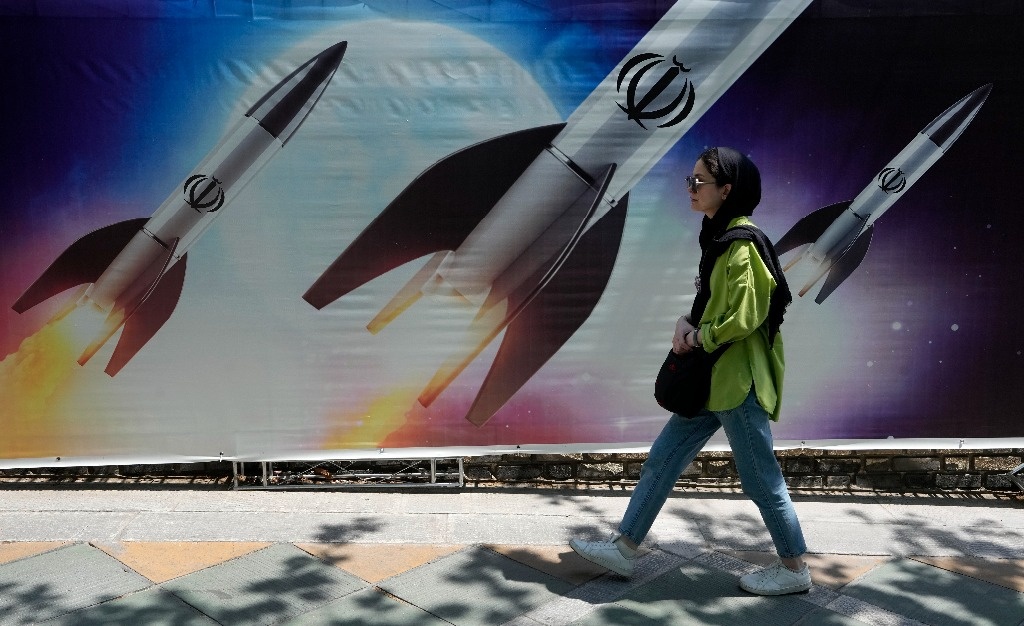Burdenonn. Several explosions shook central Iran this Friday, in what North American officials presented as an Israeli attack in retaliation for the drones and missiles fired by Tehran against Israel last Saturday.
Iran’s Fars news agency reported “three explosions” near the Shekari military base, Isfahan airport and the city of Qahjavarestan, in the center of the country.
Air defense shot down several drones, but did not detect a missile attack “for now,” said a spokesman for Iran’s space agency.
Iranian President Ebrahim Raisi gave a speech in the northeast of the country on Friday, without mentioning the explosions that occurred hours earlier.
The Tasnim press agency, citing “informed sources”, denied for its part that the country had suffered an attack “from abroad.”
The event occurs amid an escalation of tensions between Iran and Israel, which promised to respond to a recent attack by Tehran against its territory, and against the backdrop of the war in Gaza.
American media such as CNN claimed, citing senior officials in their country, that Israel had launched an attack against Iranian territory and that it had notified Washington in advance. The explosions, these sources assured, respond to the Iranian aggression against Israeli territory last Saturday.
Following the reports, Italian Foreign Minister Antonio Tajani, who chaired a meeting of his G7 counterparts on the island of Capri, called for a “de-escalation.”
“The G7 wants a total de-escalation in a region under great tension,” he declared to his counterparts from the United States, Canada, the United Kingdom, France, Germany and Japan.
Also present in Capri, the American Secretary of State, Antony Blinken, refused to comment on the explosions in Iran, and limited himself to saying that the United States “did not participate in any offensive operations.”
Russian Foreign Minister Sergei Lavrov in turn stated that Moscow indicated to Israel that Iran “does not want an escalation.”
Oman, which has long played a mediating role between Iran and Western powers, for its part condemned the “Israeli attack” against the Islamic Republic, and “Israel’s repeated military aggression in the region,” according to a ministry spokesperson. Of Foreign Affairs.
““No damage” to nuclear facilities
The International Atomic Energy Agency (IAEA) reported that Iranian nuclear facilities suffered “no damage” in the attack and warned on the X network that “no nuclear facility should ever be the target of military conflict.”
Iranian nuclear facilities are located in the center of the country, in Isfahan, Natanz and Fordo, as well as in the port city of Bushehr.
According to the American newspaper New York Timeswhich cited Iranian officials, the attack was carried out with small drones that were possibly launched from Iranian territory.
The Washington Post in turn cited an Israeli official who stated, on condition of anonymity, that the attack was in response to the weekend’s aggression and sought to show that Israel has the capacity to reach the interior of the country.
Israeli Minister of National Security, Itamar Ben Gvir, was accused of implicitly attributing the explosions in Iran to Israel.
The accusations came after the far-right minister posted the message “Dardaleh!”” in strong.
Fears of regional expansion
The Israeli army reported the activation of air raid sirens in northern Israel, on the border with Lebanon, the usual scene of shooting between its troops and the Hezbollah movement, an ally of Iran.
In parallel, different sources reported explosions in southern Syria, a country allied to Tehran that is also often the target of Israeli attacks.
Iran carried out its first direct attack against Israel on Saturday, launching some 350 drones and missiles that were almost entirely intercepted.
The Iranian authorities claimed to be acting in “legitimate defense” after the bombing of their consulate in Damascus on April 1, which they attribute to Israel and in which seven members of the Revolutionary Guard died.
These events come against a backdrop of fears of a regional expansion of the war between Israel and the Islamist movement Hamas, an ally of Tehran, in the Gaza Strip.
The conflict in Gaza began with the Hamas attack on October 7 in southern Israel, in which Islamist fighters killed about 1,170 people and kidnapped another 250, according to an AFP tally based on official data.
In response, Israel launched an air and ground offensive in Gaza, which has so far left 33,970 dead, according to the Ministry of Health of the Islamist movement, which governs the Palestinian territory.
The G7 ministers expressed to Israel their opposition to “a major military operation in Rafah”, in the south of the Strip, which according to them would have “catastrophic consequences for the civilian population” concentrated there.
#Explosions #Iran #retaliation #Israeli #government
– 2024-04-23 00:33:22


